| Rank | School | Location |
|---|---|---|
| 1 | University of Michigan-Ann Arbor | Ann Arbor, Michigan |
| 2 | Texas A&M University - School of Dentistry | Dallas, Texas |
| 3 | University of Southern California | Los Angeles, California |
| 4 | Ohio State University-Main Campus | Columbus, Ohio |
| 5 | University of Pittsburgh-Pittsburgh Campus | Pittsburgh, Pennsylvania |
| 6 | New York University | New York, New York |
| 7 | University of Minnesota-Twin Cities | Minneapolis, Minnesota |
| 8 | University of Washington-Seattle Campus | Seattle, Washington |
| 9 | University of North Carolina at Chapel Hill | Chapel Hill, North Carolina |
| 10 | University of Missouri-Kansas City | Kansas City, Missouri |
This is a ranking of the best Dental Hygienist programs in the United States. Degrees include undergrad and graduate programs in Dental Hygiene. Graduates need at least an Associate's degree in Dental Hygiene and the state license in which state they want to work. However, bachelor's and master's grads likely have a competitive advantage over associate's degree holders for gaining employment.
The duties of the dental hygienist include examining for signs of gum disease, cleaning teeth, providing overall preventive care, and educating patients in ways to improve oral health. The majority of dental hygienists work in an office. Professionals often have the option to work part-time or full-time.
In 2022 the median pay for a dental hygienist was just over $84,860, and field is expected to grow at 6 percent, which is faster than average, according to the Bureau of Labor Statistics. With over 300 dental hygiene programs in the country potential students will have a variety of school options.
The Best Dental Hygienist Programs in the U.S.
Ranking Methodology
These programs were ranked with the student in mind, and considered factors such as academic reputation, variety of coursework, and hands-on instruction.
University of Michigan-Ann Arbor
Ann Arbor, Michigan
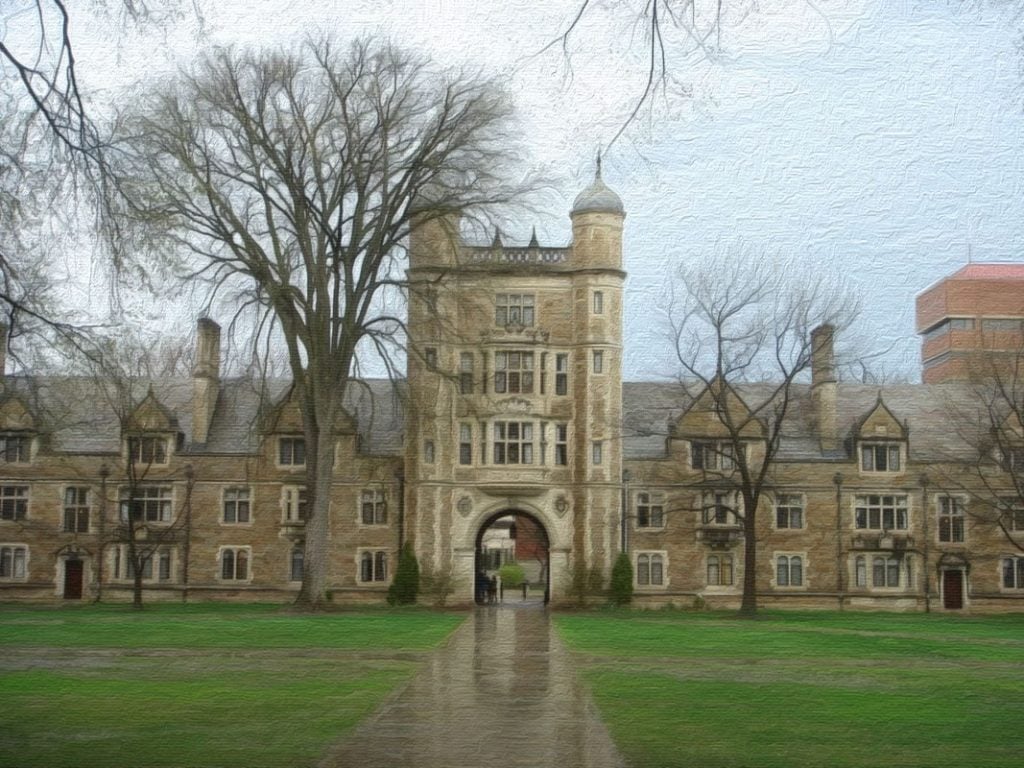
The School of Dentistry at the University of Michigan has consistently maintained a high quality of education since its founding in 1875, and has been ranked fourth in the world.
Dental Hygiene programs offered include a Bachelor of Science, Degree Completion track, and the Master's degree. Students who enroll in the Degree Completion or Master's level programs have the option to take classes online.
The Bachelor of Science degree requires students to complete 30 credit hours of course work minimum before the three years of study in the School of Dentistry. Currently 120 total credit hours are required for graduation.
Courses may include Oral Anatomy, Dental Practice Emergencies, Community Dentistry, Gerontological Dental Hygiene, and Internal Medicine.
Texas A&M University - School of Dentistry
Dallas, Texas

In 1954, Texas A&M University opened the fully equipped Caruth School of Dental Hygiene.
The undergraduate Bachelor of Science program typically takes 60 semester hours, or two years of study, to complete.
Classes may include Oral Radiology, Applied Dental Materials, Pediatric Dentistry, Perspectives in Dental Hygiene, and Public and Community Health.
Upon completion of the degree, students may sit for the National Board Dental Hygiene Examination and clinical examination for licensure, or they may continue on to Master's studies in Dental Hygiene, Public Health, Education, or Health Administration also available at Texas A&M.
There are more than 450 dental and graduate students enrolled in the Caruth School. Though most students attend full-time, and are encouraged to do so, a modified program is available for those who cannot.
University of Southern California
Herman Ostrow School of Dentistry
Los Angeles, California

The Herman Ostrow School of Dentistry at the University of Southern California has over 80 years' experience in training students in the field of dental hygiene.
In addition to the traditional Bachelor of Science degree in Dental Hygiene, a Bachelor's-Doctorate program is available. This more intensive training is a selective six-year program, leading to a Bachelor's degree and a Doctorate in Dental Surgery.
An online Master's degree is offered for professionals already in the field with full-time employment. The traditional Bachelor's degree is a five-trimester program which requires 88 units for graduation, 76 units in Dental Hygiene, and 12 units in General Education.
Classes may include Patient Education in Preventive Dental Care, Dental Morphology Lab, Infection Control, Pain & Anxiety Control, and Geriatric and Special Patients. Students are encouraged to gain clinical experience during their studies by shadowing a dental hygienist or volunteering in a dental office.
Ohio State University-Main Campus
Columbus, Ohio
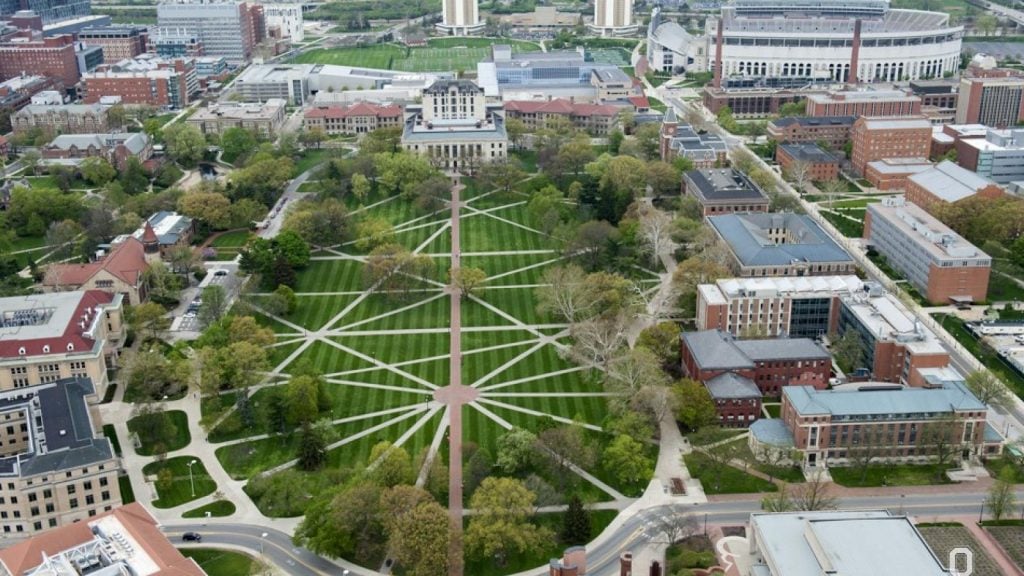
As the only dental school in the state to offer a dental hygiene program, the Ohio State College of Dentistry offers a variety and flexibility in programs not found in many other dental schools.
Students have the option to enroll part-time or full-time in undergraduate or graduate programs, with many classes available online.
The four year Bachelor of Science degree requires 63 credits for the major and two years of full-time study, including one summer term. Students have the option to specialize in Expanded Functions Dental Auxiliary or Dental Hygiene Education.
Students should also expect to participate in the dental clinic, even when classes are not in session. The College also offers a Degree Completion program for professionals with an Associate's degree or Certification, as well as a Master's in Dental Hygiene.
University of Pittsburgh-Pittsburgh Campus
Pittsburgh, Pennsylvania
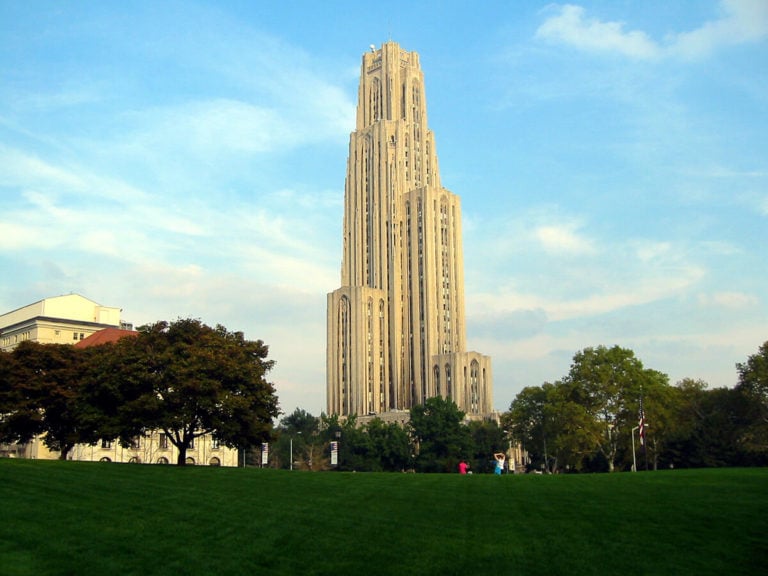
Accredited by the Commission on Dental Accreditation, the University of Pittsburgh's School of Dental Medicine Dental Hygiene program maintains a rolling admissions policy with classes available full or part-time, and online.
Associate of Science and Bachelor of Science degree programs are offered, in addition to the Baccalaureate Degree Completion program for those with previous dental hygiene education.
The Associate degree requires 87 course credits, which are typically completed in six terms, or two years. For the Bachelor's degree, students may focus their studies on Healthcare Management/Administration, Education, or Research.
Valuable experience is provided through a variety of clinical rotations both on campus and in the community, in places such as the Center for Patients with Special Needs, the Radiology Department, the Department of Pediatric Dentistry, the Department of Periodontics, and the Multidisciplinary Implant Center.
New York University
New York, New York
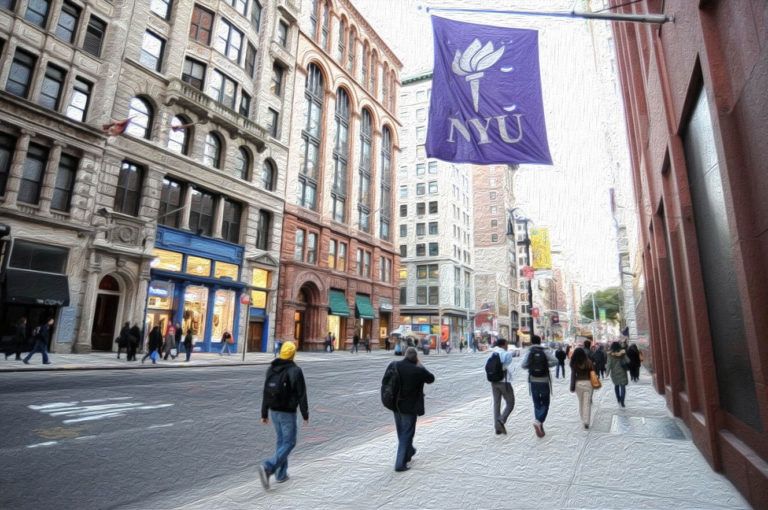
There are two Dental Hygiene programs offered through the Office of Allied Health at New York University: the Bachelor of Science or the Associate in Applied Science.
The Bachelor's program requires 128 total credits which are usually completed in four years. A bachelorette degree completion track is also available for students with an associate's degree.
The majority of courses are offered in an online format; however most of the science and clinical courses are only available on campus. Class topics include General and Oral Pathology, Dental Materials, Nutrition and Health, Pain Management, and Pharmacology.
Two internships must be completed before graduation. Though no part-time program is offered, the Associate's degree may be taken as a three-year, day or night program for students working in the field.
University of Minnesota-Twin Cities
Minneapolis, Minnesota

As a major center of dental instruction, the School of Dentistry at the University of Minnesota provides treatment, education, and consulting services to five states.
The study of dental hygiene is available at a Bachelor's or Master's level. The Bachelor of Science requires 83 credits towards the major with classes such as Head and Neck Anatomy, Oral Histology and Embryology, and Pediatric Dentistry.
Typically completed in four years, an accelerated three year program may be taken. The Master's program offers the option to specialize in Management and is available in an online format. This degree requires 33 credit hours for the standard track or 36-41 credits for the Management specialization. The faculty and students provide services to more than 105,000 patients each year.
University of Washington-Seattle Campus
Seattle, Washington

The University of Washington opened the School of Dentistry in 1945. Though the school offers a variety of undergraduate and graduate degrees, the study of Dental Hygiene is only available at the graduate level.
Students out of high school should be aware that the University of Washington does not offer any entry level dental hygiene programs, neither are there any degree-completion programs available.
The Master's program is an intensive two-year degree which requires seven quarters and approximately 70 credit hours of work. Topics covered include advanced study in oral biology, oral histology, and oral pathology.
The School of Dentistry does offer, since 2009, one of only three doctoral programs in the country for dental hygienists, maintaining a focus on Oral Biology.
University of North Carolina at Chapel Hill
Chapel Hill, North Carolina

Recognized as currently the largest dental school facility in America, UNC's School of Dentistry is also the only dental school in the state to award baccalaureate degrees. Admission to the University at large does not guarantee admission to the School of Dentistry.
Students are required to complete two years of prerequisite and general curriculum courses before applying to the dental hygiene program. A personal interview may also be required before admission.
Once accepted to the School of Dentistry students may enroll in the Certificate program of the Bachelor of Science in Dental Hygiene. This major requires 61-62 credits.
Classes may include Nutrition, Histology, Radiographic Interpretation, Dental Ethics and Jurisprudence, and Special Care in Dentistry. After graduation, students may be eligible to apply for the Master of Science in Dental Hygiene Education.
University of Missouri-Kansas City
Kansas City, Missouri
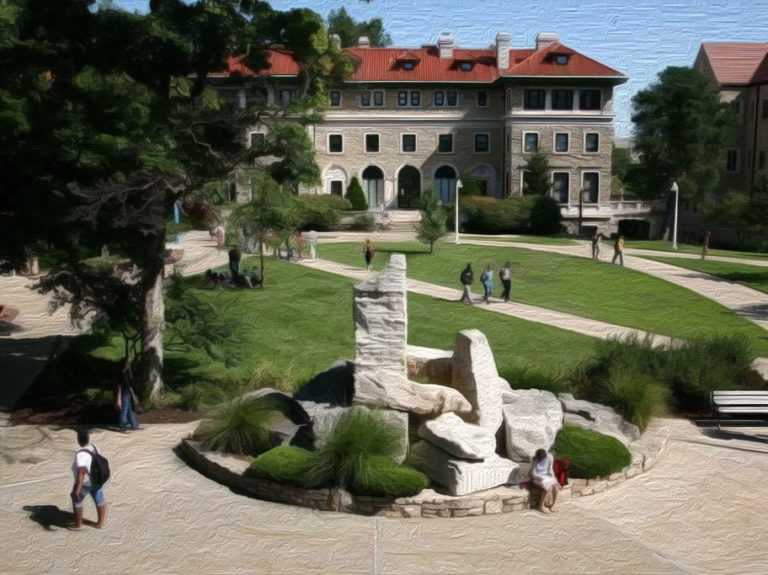
The history of the Kansas City Dental College dates back to 1881 when it was just a department within the Kansas City Medical College.
Through much academic growth, new affiliations, and mergers the small department transformed into the current School of Dentistry at the University of Missouri, the only dental school of its kind in the state.
Available degree programs include a Bachelor of Science in Dental Hygiene, the degree completion track, and a Master of Science in Dental Hygiene Education. To be considered as an applicant to the dental school, students must have 58 general education credit hours already completed.
The undergraduate Dental Hygiene degree requires a total of 124 semester hours for completion, including a dental hygiene basic preparation curriculum. Students can expect to study this major for two academic years with a summer session in between.
More resources:
